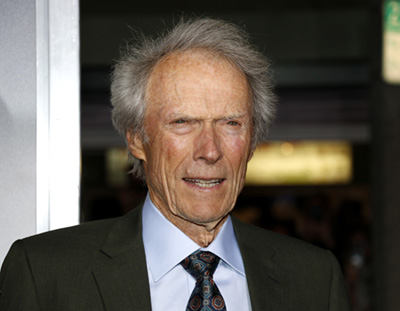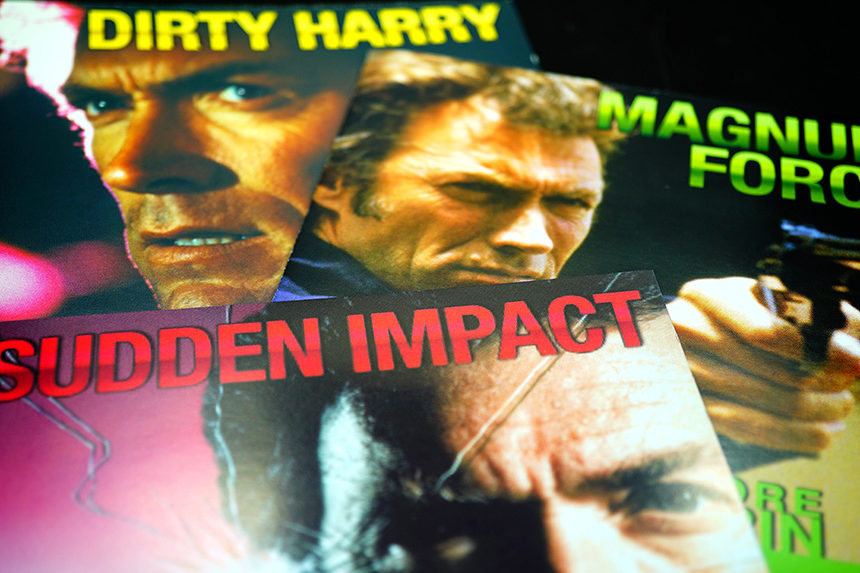Bursting onto the screen during a particularly potent 11-day span in American cinema, Dirty Harry proved to be a major, franchise-spawning success. Clint Eastwood was already a star with iconic parts like Rawhide’s Rowdy Yates and The Man with No Name from the Sergio Leone films under his belt, but Dirty Harry would be his most recognizable role for the next two decades. The movie provoked debate over the violence on screen and the tactics of police in real life. Directed by Eastwood’s frequent collaborator Don Siegel, Dirty Harry stood out during a cultural moment that was loaded with classic films.
Dirty Harry trailer (Uploaded to YouTube by Warner Bros.)
Harry Callahan sprung from the imagination of Harry Julian Fink and R.M. (Rita) Fink, a husband-and-wife screenwriting duo. Among their other credits was the John Wayne western, Big Jake. The concept of a cop willing to go outside the law was in their original concept, and they wrote several drafts of the first script. The script settled at Warner Brothers, and leads as diverse as Frank Sinatra, Steve McQueen, and Wayne himself were suggested. Similarly, other writers worked on passes of the script, including John Milius, whose mind for action and attitude would manifest in the final product. All of the actors who had been offered the role passed; Paul Newman, who had also declined, suggested Eastwood. Eastwood took on the role, and Don Siegel, came on as director. The two had already made Coogan’s Bluff, The Beguiled, and Two Mules for Sister Sara by 1971, and would go on to do Escape from Alcatraz in 1976.
The overall plot echoed the real-life Zodiac mystery that had engulfed San Francisco in the 1960s, namely the villain using an alias (Scorpio) and terrorizing the community with messages sent to the police. In the film, Scorpio continually asks for ransoms, but commits murders anyway. Callahan ends up capturing and torturing the suspect at one point; however, the police department allows the killer to go free on a technicality while Callahan is ordered to leave him alone. Following his instincts, Callahan eventually catches up to Scorpio when the killer hijacks a school bus, and executes the criminal before throwing his badge away.
Magnum Force trailer (Uploaded to YouTube by Movieclips Classic Trailers)
Dirty Harry debuted on December 23, 1971. The storyline of the film sparked considerable debate about police brutality and how far they should be allowed to go in pursuit of a suspect. Harry’s cynical, remorseless attitude would inform a number of films and anti-heroes that followed. Even if they weren’t directly based on Harry, Paul Kersey of the Death Wish series, TV’s Hunter, and more followed the “violent cop that goes outside the lines” archetype that Harry established. Regardless of any qualms critics might have had, the film was a major success and spawned four sequels: Magnum Force (1973), The Enforcer (1976), Sudden Impact (1984), and The Dead Pool (1988).
Harold and Maude trailer (Uploaded to YouTube by Trailer Chan)
One of the most interesting things surrounding Dirty Harry’s release is that it hit theaters in the midst of a particularly remarkable 12-day stretch of films. Between December 17 and December 29, Diamonds Are Forever, A Clockwork Orange, Harold and Maude, The Last Picture Show, and Straw Dogs all reached screens. It’s a potent snapshot of the 1970s as a great film decade. It’s a balance of films with lofty artistic ambitions and general box-office pleasers. The group includes visionary directors like Stanley Kubrick, Hal Ashby, Peter Bogdanovich, and Sam Peckinpah, and iconic characters like Harry and James Bond. Eastwood remained a major figure throughout the decade, both in the Harry role and in films like High Plains Drifter and The Outlaw Josey Wales. The balance, and occasional battle, between art and commerce was evident in the arrival of films like Eraserhead and Badlands, while also giving birth to huge blockbusters like Jaws and Star Wars. If you can say one true thing about that decade in film, it’s that there was literally something for everyone.

Eastwood has repeatedly returned to the notion of violence and crime in society as themes across a number of movies. His major examination of the content of his Westerns came in the form of Unforgiven, his 1992 film that earned Best Picture at the Oscars while securing Eastwood a Best Director award. In his films since, Eastwood has continued this exploration in movies like Gran Torino and The Mule.
Dirty Harry achieved popularity at a time when fears about crime and mysterious killers like Zodiac dominated headlines. Today, a cop like Callahan, even a fictional one, would be less celebrated. When dramas are made about flawed police, like TV’s The Shield or The Departed, they typically include a much deeper view of the consequences of brutal policing. Nevertheless, Harry Callahan remains a popular character 50 years after his introduction, and it wouldn’t be surprising if that 1970s icon underwent that most 2020 of entertainment developments: the reboot.
Featured image: Kraft74 / Shutterstock
Become a Saturday Evening Post member and enjoy unlimited access. Subscribe now



